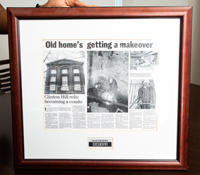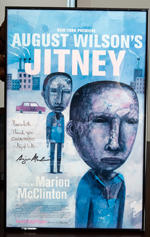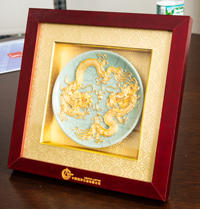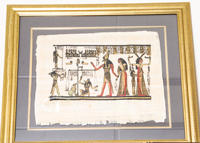When Meredith Marshall and his family moved to Flatbush in the 1960s, all the white families moved out. Within 10 years, the neighborhood was 90 percent black, he recalled.
“Neighborhood busting, as they call it,” he said. “First black family moves in, prices go down, all the white families move out. The brokers make money on both ends.”
Today, as co-founder and managing partner of Manhattan-based BRP Companies — which pegs its real estate portfolio at $1.7 billion with another $1.5 billion in the pipeline — Marshall is overseeing the development of a 255-unit rental in the neighborhood he grew up in. The project, dubbed Caton Flats, broke ground in May and is one of three major developments the firm currently has underway in New York.
The company, which focuses largely on affordable housing, is developing a combined 2,300 residential units at 16 projects in New York and Philadelphia.
In the five boroughs, those projects include the Crossing at Jamaica Station, which is backed by Goldman Sachs, and the nearly 1,000-unit La Central complex in the Bronx, where BRP is partnering with Hudson Companies and others.
Marshall, 53, started his career in investment banking before co-founding Musa Capital Advisors, a private equity and financial advisory shop that focused on Africa. From there, he launched BRP.
Locally, developing in emerging communities often comes with friction if residents fear getting pushed out. The thinking is that “if someone builds a new shiny building, they’re causing gentrification or prices to rise. I think it’s a mistake,” Marshall said, adding that before he was a developer he was also wary of what new buildings meant for a neighborhood.
Instead, Marshall — a father of three who now lives in New Jersey — said BRP’s projects provide workforce housing to these neighborhoods. “There’s a lack of housing for that population.”
Framed Newspaper Article

Meredith’s first BRP project was the derelict Graham Home in Clinton Hill. Over the years, the pre-Civil War building was a residence for indigent women, host to psychedelic parties and a brothel. “There are stories about ghosts and all that stuff, so people were spooked out,” Marshall said. “It was owned by some nefarious guys.” This New York Daily News story from 2000 was among the coverage the firm received for its condo proposal at the site.
“Jitney” Poster

While living in Africa for several years in the 1990s, Marshall met actor Wendell Pierce, known for his roles in “Suits” and “The Wire.” At the time, Pierce was co-producing August Wilson’s now-famed “Jitney” and was looking to raise money. Marshall took on the task and later received a credit as associate producer. “As a producer, you know you get the best seats in the middle,” he said. “And to my right is Denzel Washington, to my left is Angela Bassett.” Pierce was later in Marshall’s wedding party.
home run Baseballs

Marshall keeps his sons’ first home run balls in his office on the 33rd floor of 767 Third Avenue. As a teenager, Marshall played high school baseball at Brooklyn Tech, but his sons (ages 12 and 14) are having even more on-field success. While being interviewed, Marshall was getting updates from the regional tryouts of the U.S.A. National Team. Marshall also keeps a photo of his daughter, now 16, dancing at Alvin Ailey American Dance Theater in his office.
 Gold Scissors
Gold Scissors
In 2013, with backing from city and state agencies, BRP bought a portfolio of 63 buildings in East New York for $100 million. As part of the deal, BRP agreed to renovate and repair the nearly 500 units and charge residents rent that was only 30 percent of their income. The ribbon-cutting scissors from the project now sit on his desk.
Plate from China

This plate was given to Marshall by executives at CNOOC Group, China’s third-largest oil company. The oil giant was involved in a deal that never materialized, which Marshall was working on in South Africa while at Musa. Musa, which he founded with friends he met when he was in college at Boston University, completed about a dozen projects in Africa.
Egyptian Papyrus

Marshall purchased this Egyptian papyrus — which has a depiction of Osiris, the god of afterlife, the underworld and rebirth — on a trip to Egypt in the 1990s for a business conference. At the time, he was working for investment bank Wasserstein Perella & Co., where he was covering the telecom industry. Once the conference wrapped, he toured the country, visiting the city of Aswan, the Abu Simbel temples and the Sphinx.
